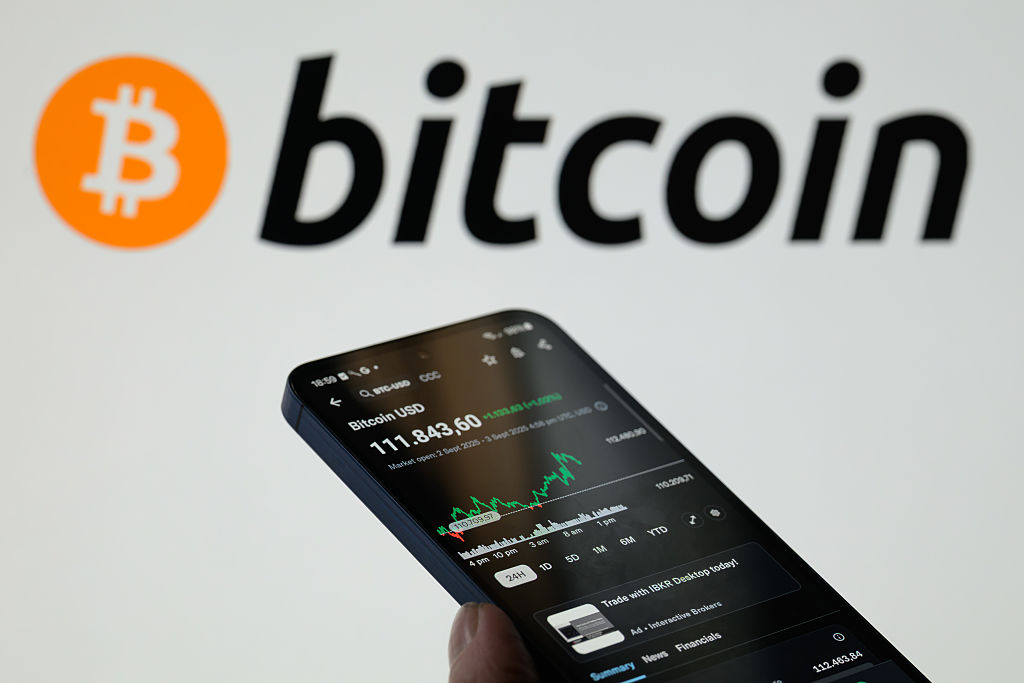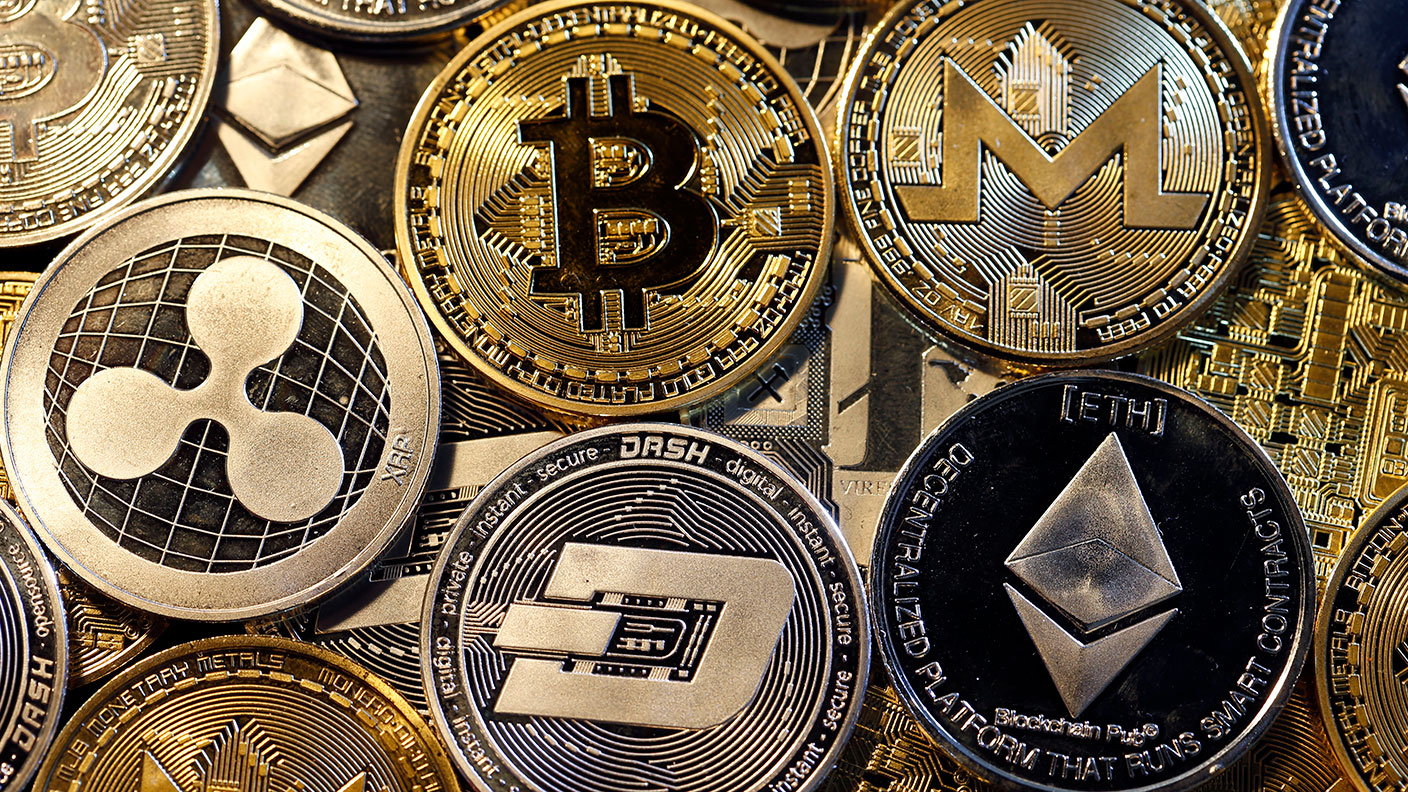Investing in the digital economy
Cryptocurrencies have the potential to fundamentally reshape the global financial system. How, then, do investors explore these ideas?

As the digital economy continues to grow exponentially, the financial technology providers with the specialist expertise to help people participate in it are moving centre-stage. These fintechs provide the infrastructure that underpins the way in which digital technologies are changing the way we work, live and play.
In the UK alone, fintech businesses attracted $11.6bn of investment last year according to the CBI – a 217% increase on 2020 – and the number of billion dollar “unicorn” businesses in the sector more than doubled. And this is a global phenomenon – because the digital economy is expanding fast all around the world, so too are the fintechs that support it.
Given the achievements already made by fintechs and the prospects for further growth, many investors are excited by the returns potentially on offer from getting in at an early stage. But investing in this aspect of the digital economy is not always straightforward, with pitfalls that could catch out the unwary. Take three areas of the market where investors’ interest is coalescing:
MoneyWeek
Subscribe to MoneyWeek today and get your first six magazine issues absolutely FREE

Sign up to Money Morning
Don't miss the latest investment and personal finances news, market analysis, plus money-saving tips with our free twice-daily newsletter
Don't miss the latest investment and personal finances news, market analysis, plus money-saving tips with our free twice-daily newsletter
Managing cryptocurrency risk UK investors have become increasingly enthusiastic about cryptocurrency assets, prompting the Financial Conduct Authority, the UK’s chief City regulator, to publish a cautionary note last month. Investment in these assets is not regulated in the UK, the FCA point out, as market volatility hit the value of many investors’ holdings.
Cryptocurrencies, for the uninitiated, are digital currencies that are secured by sophisticated cryptography; the best-known example is Bitcoin, but there are many more. Many cryptocurrencies run on decentralised technologies, making use of blockchains – effectively ledgers of transactions maintained by huge networks of computers.
As recent months have shown, cryptocurrencies can rise and fall with alarming speed, but that is not to downplay the fundamental value and usefulness of digital currency. It provides a means to electronically exchange value with anyone, anywhere, and to do so instantly, with no need to use traditional intermediaries such as banks. The potential is to fundamentally reshape the global financial system.
How, then, do investors explore these ideas? One option could be to look at those companies leading the cryptocurrency charge, rather than the assets themselves. That could include, among others, companies directly involved in crypto mining, payments, finance, and infrastructure. All of them are supporting the use of digital assets and their associated networks as the foundation for a digital economy.
Profiting from payments Consumers have got used to being able to settle their bills in new ways that offer greater convenience and reduced stress. Contactless payment is one example: the total value of contactless transactions in the UK increased to £166bn last year according to UK Finance, a 46% increase on the previous year. The growth of buy-now, pay-later financing is another; harnessing new technologies, innovators in this industry are able to offer consumers personalised financing plans at the point of payment. And then there are mobile payments, with millions of people now using their phones to pay for goods and services, dispensing with bank cards and cash altogether.
All these payment capabilities require innovation and infrastructure from payments companies focused on facilitating communication, commerce and collaboration. It is easy to start taking them for granted very quickly given their mass adoption, but they wouldn’t exist were it not for the disruptive influence of fintech businesses that have developed the necessary technology.
These include businesses that have become household names, such as digital payments processor Paypal or the British challenger bank Revolut, as well as newer entrants such as Coinbase, one of the most popular cryptocurrency exchanges.
Switching to digital first Traditional businesses in the financial services space are naturally keen to play their part in innovation – and to offer their own customers new digital products and services. However, while these businesses have launched initiatives in areas ranging from online banking to mobile apps, these have to be bolted on to their legacy technologies and systems; inevitably that holds them back.
Digital-first businesses in the fintech sector, by contrast, have been able to develop their products and services from scratch. They’ve been able to build networks, protocols and other infrastructure specifically for the purpose of delivering digital economy products, rather than having to retrofit systems that were developed for an analogue age.
From an investment perspective, these digital-first businesses feel particularly alluring. The digital economy will feature a broad range of financial institutions, including incumbent providers, but newer fintechs are likely to benefit from greater agility and flexibility.
Against this backdrop, the key for investors will be to think about which companies are best-placed to power the transition to the digital economy – and the right way to secure exposure to those businesses.
“The digital economy represents a fundamental reimagining of the global financial system to a new paradigm that harnesses the speed, convenience and capabilities of modern financial technology,” says Michael Sonnenshein, CEO of Grayscale Investments, an asset manager focused in this area. “Our own Grayscale Future of Finance UCITS ETF is one product that aims to capture these themes in a single convenient fund, but there are many ways for investors to receive exposure to this global megatrend.”

• Find out more at www.hanetf.com/grayscale
Get the latest financial news, insights and expert analysis from our award-winning MoneyWeek team, to help you understand what really matters when it comes to your finances.
MoneyWeek is written by a team of experienced and award-winning journalists, plus expert columnists. As well as daily digital news and features, MoneyWeek also publishes a weekly magazine, covering investing and personal finance. From share tips, pensions, gold to practical investment tips - we provide a round-up to help you make money and keep it.
-
 Last chance to invest in VCTs? Here's what you need to know
Last chance to invest in VCTs? Here's what you need to knowInvestors have pumped millions more into Venture Capital Trusts (VCTS) so far this tax year, but time is running out to take advantage of tax perks from them.
-
 ISA quiz: How much do you know about the tax wrapper?
ISA quiz: How much do you know about the tax wrapper?Quiz One of the most efficient ways to keep your savings or investments free from tax is by putting them in an Individual Savings Account (ISA). How much do you know about ISAs?
-
 Bitcoin 'has become the reserve asset of the internet'
Bitcoin 'has become the reserve asset of the internet'Opinion The cryptocurrency has established itself as the electronic version of gold, says ByteTree’s Charlie Morris
-
 Crypto scams – what to look out for
Crypto scams – what to look out forFraudsters are using cryptocurrency scams to lure investors desperate for high returns - here is how to spot and avoid them
-
 Investment platforms rapped over low interest offered on cash holdings
Investment platforms rapped over low interest offered on cash holdingsFinancial Conduct Authority (FCA) threatens action against investment platforms paying poor rates on cash balances
-
 FCA to force “cooling-off period” for new crypto investors
FCA to force “cooling-off period” for new crypto investorsNews Firms will have ensure investors have the appropriate knowledge and experience to invest in crypto as the FCA cracks down on the industry.
-
 The simple way to invest in iconic classic cars
The simple way to invest in iconic classic carsAdvertisement Feature Alternative and passion investing are areas that have seen considerable growth in recent years, but some asset classes have priced investors out. Now, The CarCrowd offers a new concept of fractional investment and is unlocking the potential of classic cars for thousands of qualifying investors.
-
 What London’s new share listing rules mean for your money
What London’s new share listing rules mean for your moneyBriefings UK regulators hope that weaker listing rules will attract more tech listings and rejuvenate a declining stockmarket. Perhaps they should pay more attention to other growth sectors.
-
 Cryptocurrency round-up: PayPal taps into UK crypto market and FCA blacklists Binance
Cryptocurrency round-up: PayPal taps into UK crypto market and FCA blacklists BinanceNews In a mixed week for crypto, PayPal taps into the UK market and the FCA blacklists Binance. Saloni Sardana looks at the week in crypto.
-
Cryptocurrency roundup: Binance “ban” and a bitcoin ETF
News It was an eventful week for cryptocurrencies, with the FCA “banning” crypto-exchange Binance, and the launch of a bitcoin ETF. Saloni Sardana rounds up the week in crypto.

